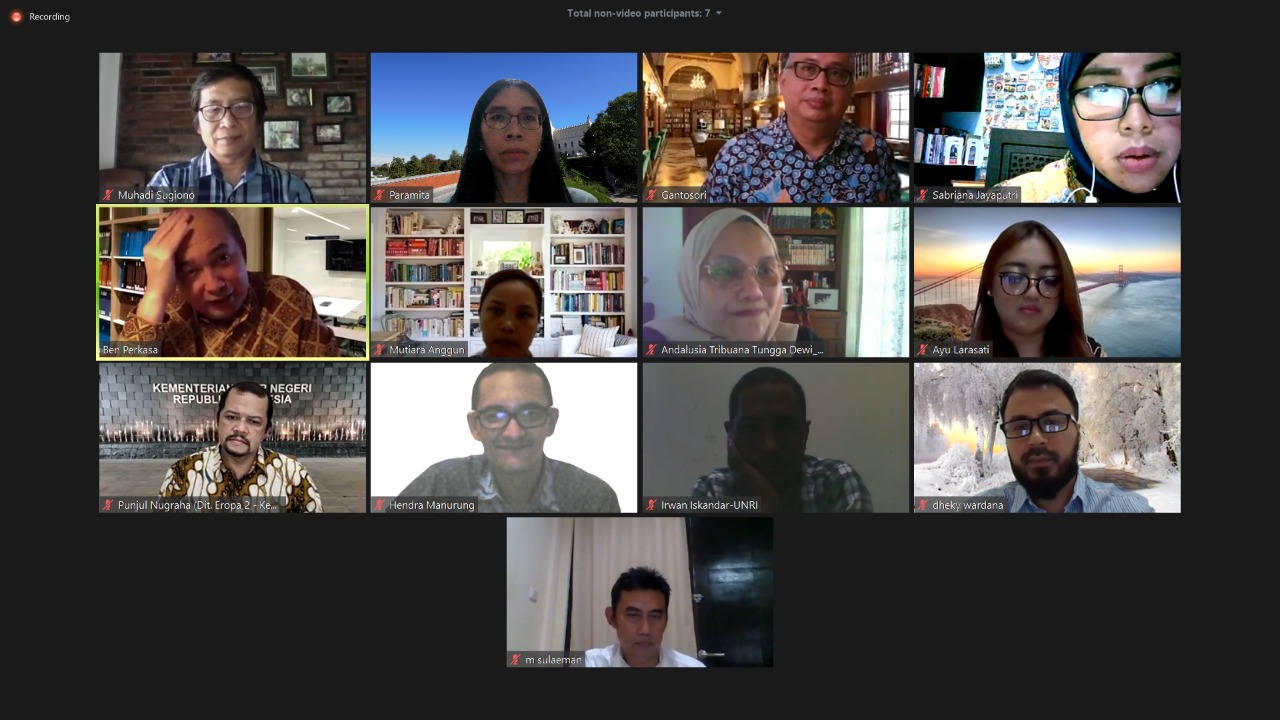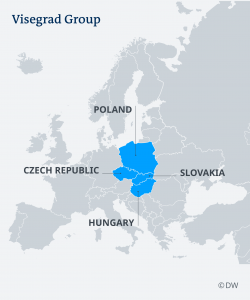INDONESIA – VISEGRAD GROUP POTENTIAL DIGITAL ECONOMY COOPERATION
The Policy Analysis and Development Agency of the Indonesian Ministry of Foreign Affairs held a virtual Focus Group Discussion with the theme ‘Potential for Digital Economic Cooperation with Visegrad Countries (Poland, Czech, Slovakia, and Hungary)’, on November 25, 2020.
In this activity, there were four resource persons who presented related topic, i.e.: Indonesian Investment Opportunities to Visegrad Countries in the Digital Economy Sector (Dr. Ben Perkasa Drajat / BPPK Kemenlu); Potential Cooperation in the Digital Economy Sector with the Visegrad Group (Hendra Manurung / Indonesia Community for European Studies); Efforts of Business Actors in the Digital Economy Sector (Bima Laga / Buka Lapak); and the Contribution of the Digital Economy to National Economic Growth (Dheky Wardana / PT. Vensia Event Indonesia). The event attended by around 30 active participants from the Indonesia Community for European Studies and Indonesia Ministry of Foreign Affairs.
After the Cold War (1990), the Visegrad countries which previously joined the Soviet Union Defense Alliance, ‘Warsaw Pact’, decided to join the North Atlantic Treaty Organization (NATO) in March 1999. The Visegrad group was formed on 15 February 1991 in the castle town of Visegrad (Hungary). Then, the four countries together with Lithuania, Estonia, Latvia, Poland, Czech, Hungary, Slovakia, Slovenia, Malta, and Cyprus joined the European Union on May 1, 2004.
The Visegrad countries leaders have always worked together to increase and strengthen cooperation in the political, military, cultural, economic, and energy fields in line with efforts to advance integration into the European Union during the last 16 years (2004-2020).
The FGD activity also discussed the background of the digital economy cooperation between Indonesia and the Visegrad countries; ease of doing business, e-government, e-services, e-commerce, and Indonesia’s outward investment in Visegrad countries and vice versa; Digital Agenda For Europe 2021-2027; the need to optimize the support of the Indonesian government and the Visegrad countries to enhance and strengthen digital economic cooperation through the existence of a clear Master Plan related to the formation of digital economic cooperation; opportunities and challenges that are currently and likely to be faced; clear, transparent, directed and measurable regulations on digital economic cooperation; need the right policy; research and development in the region and internationally; internet penetration preparation; optimizing the role of micro, small and medium enterprises in facing advances in information technology, how to use them in the digital economic sector; as well as preparing Indonesian human resources.
In conclusion, the topic raised in this FGD is interesting and challenging for further elaboration by holding a bigger event in 2021, with inviting Visegrad Ambassadors in Indonesia, policy-makers, scholars, researchers, academics, experts, and students who concern about the future of Indonesia’s digital economy cooperation with the European Union, especially the Visegrad countries.


